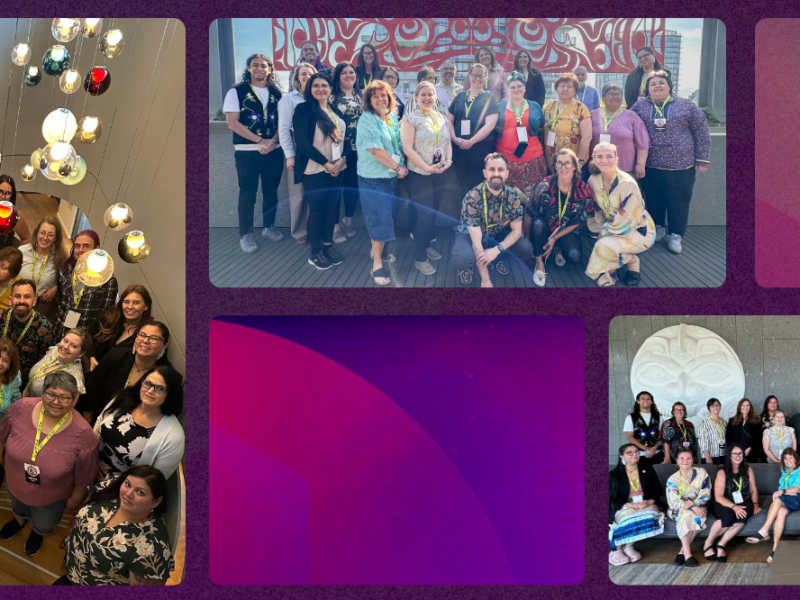Unlocking Potential: Advancing Immigrant Talent in the Canadian Workplace

Skilled immigrants still aren’t advancing as fast or as far as their Canadian-born counterparts. According to a 2019 TRIEC study, only 6% of executive positions among leading employers in the Greater Toronto Area were held by immigrants. This is despite the fact that immigrants, many of whom hold advanced degrees, make up nearly half of the Greater Toronto Area’s population. The percentage is so low not because immigrants lack the necessary skills or qualifications but because many do not know how career advancement works in the Canadian workplace. And employers are missing out on the opportunity to tap into immigrants’ skills and expertise.
Through the Career Advancement for Immigrant Professionals (CAIP) program, we heard similar stories from many immigrant participants about their struggles with career advancement. To be sure, competence and skills are crucial, but ability alone won’t propel one forward in the workplace.
Aside from demonstrating drive at work, immigrant professionals must understand cultural differences in career advancement processes. Managers must understand these differences too, and have inclusive leadership skills. Ongoing, two-way conversations between immigrant employees and their managers are essential for immigrant career advancement within an organization.
TRIEC’s CAIP program, funded by the Future Skills Centre, provides a hands-on, dual approach that bridges the gap between managers’ and immigrants’ perceptions of immigrant career advancement. Managers gained inclusive leadership skills to support career advancement for immigrant professionals. After program delivery, many immigrant participants gained promotions in their organizations, and their salaries increased within a year of completing the program.
The Gap between Managers’ and Immigrant Professionals’ Perceptions
Prior to the program, we asked managers and immigrants about how supported newcomer team members felt in advancing their careers and how aware they were of career advancement resources in their organizations. Even among manager-immigrant teams working for the same employer, we found managers’ and immigrants’ responses were very different. For example, while 60% of managers either agreed or strongly agreed that all employees knew whom to contact to find information about how to advance in their careers, immigrants were less likely to agree (35%) (Figure 1).
Another gap relates to the perception of support. While 80% of managers thought they shared enough information about career progression processes, criteria and opportunities, only 53% of immigrants agreed (Figure 1). These data are from one organization, but we saw the same trends in all the organizations we worked with.

Through the delivery of CAIP, we supported managers and immigrant team members in closing this gap. After the program, managers reported feeling more prepared to support immigrants with their career advancement than before they had enrolled (1 being “not at all prepared” and 10 being “as prepared as possible”). The average score increased 2.8 points from pre-program to post-program delivery. (Figure 2; total of three organizations’ results).

We also found that the managers continued to support immigrant professionals’ career advancement even one year after the program’s delivery. Some managers also reported seeing a change in their immigrant team members as a result, such as team members becoming more active in sharing their ideas and goals.
Meanwhile, newcomers reported increased confidence in navigating career advancement after participating in CAIP. Even one year later, many reported having applied what they had learned. Further, 64% of participants reported promotions, salary increases and lateral moves, as well as access to professional development opportunities.
The Way Forward
For meaningful advancement in the workplace, bridging the gap between managers and newcomers is essential. CAIP’s tailored approach facilitates this critical shift, enabling both sides to thrive.
While immigrants receive support securing their first jobs through employment and settlement agencies, this kind of support is not enough. Employers also need to take action. With immigrants representing a substantial portion of the labour market, employers stand to benefit from leveraging inclusive career advancement as a strategy for engagement and retention, which will result in stronger, more effective teams. When this happens, immigrant professionals can do more than simply secure their first jobs—they can thrive, grow their careers and contribute to the successes of their organizations and Canada.
TRIEC provides video and PDF resources with practical tips for managers who want to enhance their skills to support immigrant team members with advancement, and newcomer team members looking to increase their ability to navigate advancement in Canada.
The views, thoughts and opinions expressed here are the author’s own and do not necessarily reflect the viewpoint, official policy or position of the Future Skills Centre or any of its staff members or consortium partners.




